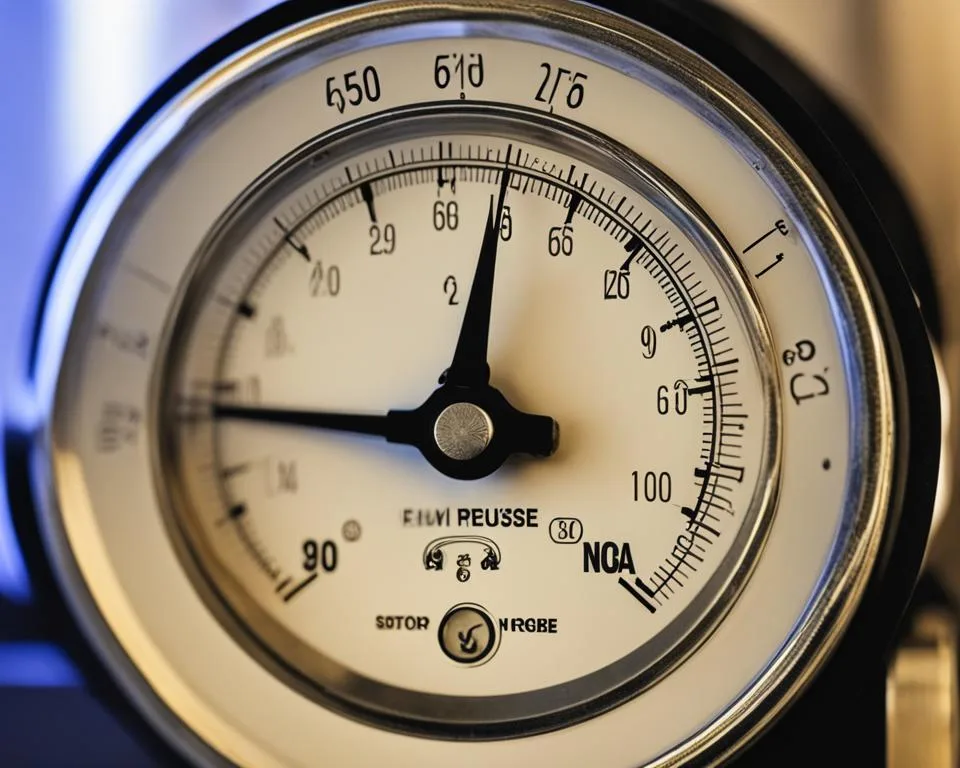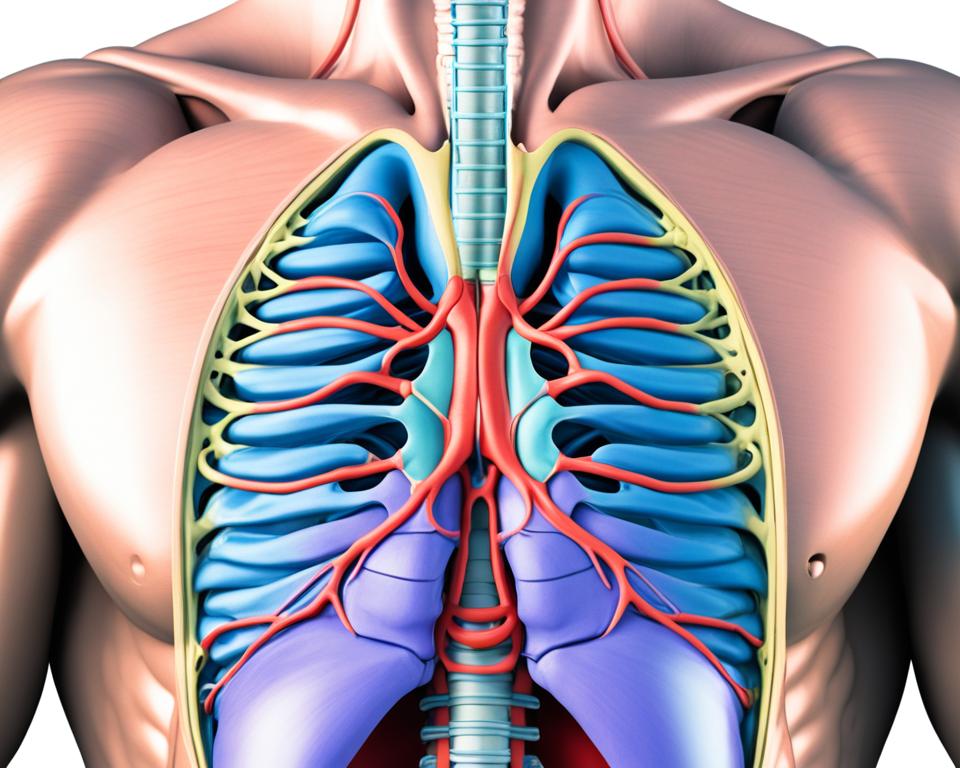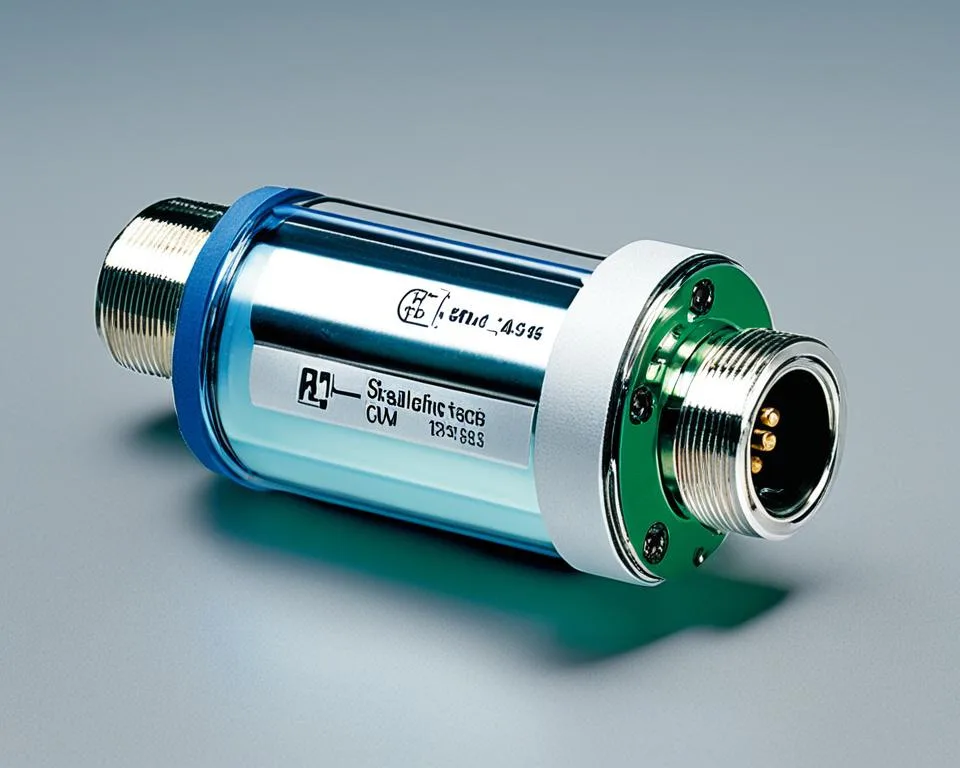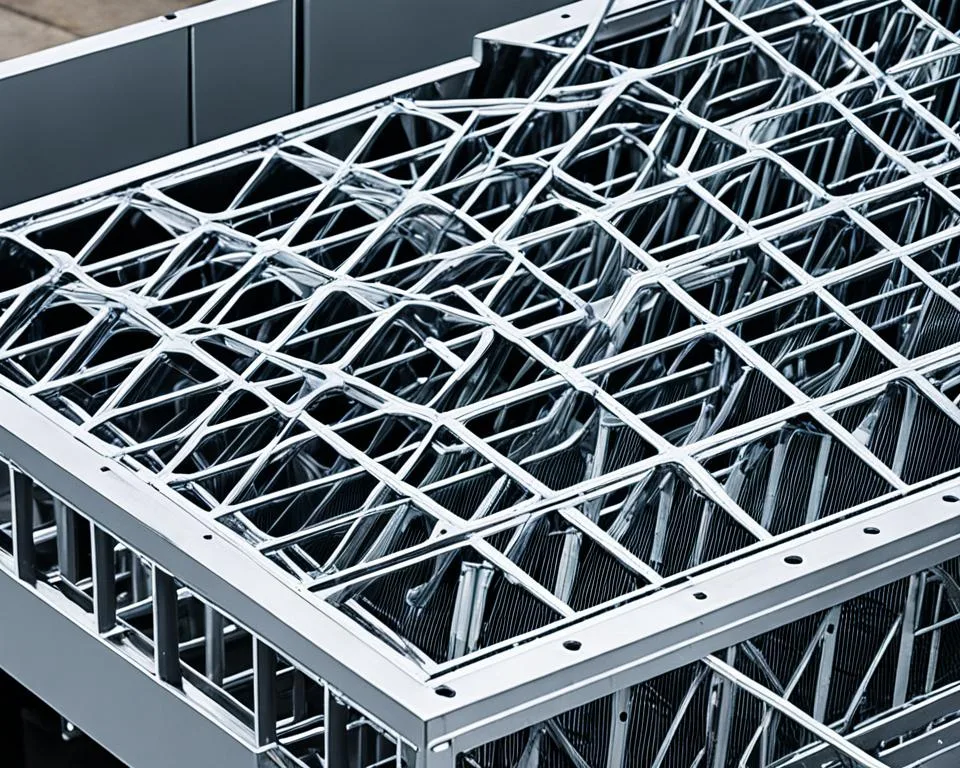Pressure gauge คืออุปกรณ์ที่ใช้ในการวัดความดันของของเหลว เช่น น้ำ ก๊าซ หรือไอน้ำ ในเครื่องจักรหรือระบบที่ใช้ความดันโดยตรง เพื่อให้เรามั่นใจว่าไม่มีการรั่วไหลหรือการเปลี่ยนแปลงความดันที่อาจส่งผลกระทบต่อประสิทธิภาพของระบบ
การวัดความดันนั้นมีความสำคัญมากในการตรวจสอบและควบคุมกระบวนการในงานอุตสาหกรรม โดยเครื่องมือกล่าวมีวิธีการทำงานที่หลากหลาย อาทิเช่น pressure gauge ที่มีหัววัดแสดงผลบนสเกลหรือแผ่นปัดที่ประมาณค่าความดันที่วัดได้ ให้คุณมีความเข้าใจใน pressure gauge มากขึ้น
สิ่งที่ควรจำ:
- Pressure gauge เป็นเครื่องมือที่ใช้ในการวัดความดันของของเหลวและก๊าซในระบบต่างๆ
- มีหลายประเภทของ pressure gauge ที่ใช้กันอย่างแพร่หลาย เช่น bourdon tube pressure gauge, diaphragm pressure gauge, capsule pressure gauge และอื่น ๆ
- การใช้ pressure gauge มีประโยชน์ในการควบคุมและตรวจสอบความดันในงานอุตสาหกรรม
- Pressure gauge เป็นเครื่องมือสำคัญที่ช่วยลดความเสี่ยงจากการรั่วไหลและประหยัดเวลาและค่าใช้จ่าย
- ผู้ใช้งานควรทราบวิธีการใช้ pressure gauge อย่างถูกต้องเพื่อการวัดความดันที่แม่นยำ
การทำงานของ Pressure Gauge
Pressure gauge ทำงานโดยวัดความดันของของเหลวหรือก๊าซในระบบ โดยมีหัววัดที่เคลื่อนที่ตามการเปลี่ยนแปลงในความดัน มีหลายประเภทของ pressure gauge ที่ใช้กันอย่างแพร่หลาย เช่น bourdon tube pressure gauge, diaphragm pressure gauge, capsule pressure gauge, absolute pressure gauge, differential pressure gauge, bellows pressure gauge, manometer pressure gauge, และ piezometer pressure gauge.
Pressure gauge ทำงานโดยการวัดความดันของของเหลวหรือก๊าซที่ใช้ในระบบต่างๆ โดยมีหัววัดที่เคลื่อนที่ตามการเปลี่ยนแปลงในความดัน เครื่องมือเหล่านี้แตกต่างกันตามหลักการทำงานและลักษณะการใช้งานของแต่ละประเภท การทำงานของ pressure gauge เป็นสิ่งสำคัญในการควบคุมความดันและตรวจสอบความเปลี่ยนแปลงของความดันในระบบต่างๆ โดยมีการวัดความดันในหน่วยต่างๆ ซึ่งมักแบ่งออกเป็นหน่วยบาร์หรือปอนด์ต่อนิ้วกลายเป็นที่นิยมในงานอุตสาหกรรม
| ประเภทของ Pressure Gauge | หลักการทำงาน | การวัดความดัน | การใช้งาน |
|---|---|---|---|
| Bourdon tube pressure gauge | หลักการของท่อบูร์ดองที่เคลื่อนที่เมื่อเปลี่ยนแปลงความดัน | ความดันสูงสุด 0.6 ถึง 7000 บาร์ | สามารถใช้งานได้ในงานอุตสาหกรรมที่ต้องการความชัดเจนในการวัดความดัน |
| Diaphragm pressure gauge | หลักการของแผ่นปัดหรือแผ่นกำมะหยี่เมื่อมีการเปลี่ยนแปลงความดัน | ความดันต่ำกว่าเหมาะสมสำหรับ bourdon tube pressure gauge | ใช้ในการวัดความดันที่ต่ำกว่าเหมาะสมสำหรับ bourdon tube pressure gauge |
| Capsule pressure gauge | หลักการของแคปซูลสองชั้นเมื่อมีการเปลี่ยนแปลงความดัน | วัดความดันของก๊าซได้สูงสุดถึง 600 mbar | ใช้หลักการของแคปซูลสองชั้นเมื่อมีการเปลี่ยนแปลงความดันของก๊าซ |
| Absolute pressure gauge | ยังคงวัดความดันแม้ไม่มีการเปลี่ยนแปลงความดันอื่นๆ | ใช้วัดความดันเชิงสัมพันธ์กับความดันในบริเวณแวคชั่น | สามารถใช้งานได้ในสภาวะที่แวคชั่นแปลก ๆ |
| Differential pressure gauge | วัดความแตกต่างระหว่างแรงดันสองจุด | ทำการวัดเมื่อมีการแตกต่างในความดัน | ใช้สำหรับวัดแรงดันระหว่างสองจุด |
| Bellows pressure gauge | หลักการของกระบอกเมื่อมีการเปลี่ยนแปลงความดัน | ความดันต่ำกว่าเหมาะสมสำหรับ bourdon tube pressure gauge | ใช้ในการวัดความดันที่ต่ำกว่าเหมาะสมสำหรับ bourdon tube pressure gauge |
| Manometer pressure gauge | หลักการของปรอทที่ใช้สมดุลอัตราของสองน้ำมัน | – | ใช้ในการวัดความดันแบบท่อที่ทำงานหรือตอบสนองต่อความดัน |
| Piezometer pressure gauge | หลักการของท่อที่ทำงานหรือตอบสนองต่อความดัน | – | ใช้ในการวัดความดัน |
ประเภทของ Pressure Gauge
ในงานอุตสาหกรรมมีหลายประเภทของ pressure gauge ที่ใช้ในการวัดความดันของของเหลวและก๊าซในระบบต่างๆ โดยจะมีคุณสมบัติและการทำงานที่แตกต่างกัน ขออธิบายเพิ่มเติมเกี่ยวกับแต่ละประเภทดังต่อไปนี้:
Bourdon Tube Pressure Gauge
Bourdon tube pressure gauge ใช้หลักการของท่อบูร์ดองที่เคลื่อนที่เมื่อเปลี่ยนแปลงความดัน มีความสามารถในการวัดความดันได้ตั้งแต่ 0.6 ถึง 7000 บาร์ โดยใช้เหมือนหัววัดแสดงผลบนสเกลที่ประมาณค่าความดันที่วัดได้
Diaphragm Pressure Gauge
Diaphragm pressure gauge ใช้หลักการของแผ่นปัดหรือแผ่นกำมะหยี่เมื่อมีการเปลี่ยนแปลงความดัน แผ่นปัดจะเคลื่อนที่หรือพับตัวเล็กน้อยเมื่อแรงดันเปลี่ยนแปลง มักถูกนำมาใช้ในการวัดความดันที่ต่ำกว่าเหมาะสมสำหรับ bourdon tube pressure gauge
Capsule Pressure Gauge
Capsule pressure gauge ใช้หลักการของแคปซูลสองชั้นเมื่อมีการเปลี่ยนแปลงความดัน มักถูกนำมาใช้ในการวัดความดันของก๊าซ สามารถวัดความดันได้สูงสุดถึง 600 mbar
Absolute Pressure Gauge
Absolute pressure gauge ใช้วัดความดันโดยไม่รับผิดชอบต่อการเปลี่ยนแปลงความดันที่เกิดขึ้นในอีกส่วนหนึ่ง สามารถใช้งานได้ทั้งในสภาวะที่แวคชั่นแปลกๆ เช่นในงานที่เกี่ยวข้องกับการบิน ระบบโฮเวียคบำบัดอากาศ และกระบวนการการกลั่น
Differential Pressure Gauge
Differential pressure gauge วัดความแตกต่างระหว่างแรงดันจุด สามารถตรวจวัดการแสดงเวลามีการลดความดันบน pressure gauge
Bellows Pressure Gauge
Bellows pressure gauge ใช้หลักการของกระบอกเมื่อมีการเปลี่ยนแปลงความดัน มักถูกนำมาใช้ในการวัดความดันที่ต่ำกว่าเหมาะสมสำหรับ bourdon tube pressure gauge
Manometer Pressure Gauge
Manometer pressure gauge ใช้หลักการของปรอทที่ใช้สมดุลอัตราของสองน้ำมัน เพื่อวัดความดันในระบบต่างๆ
Piezometer Pressure Gauge
Piezometer pressure gauge ใช้หลักการของท่อที่ทำงานหรือตอบสนองต่อความดัน เพื่อใช้ในการวัดความดันในระบบต่างๆ
การใช้งานของ Pressure Gauge
Pressure gauge เป็นเครื่องมือที่สำคัญสำหรับงานอุตสาหกรรมที่ต้องการการควบคุมและตรวจสอบความดัน การวัดความดันโดยใช้ pressure gauge มีประโยชน์มากทั้งในแง่ของความปลอดภัยและประสิทธิภาพของระบบที่ใช้ความดัน
ประโยชน์ของการใช้ pressure gauge
- ตรวจสอบและควบคุมความดัน: Pressure gauge ช่วยให้เราสามารถตรวจสอบและควบคุมความดันของของเหลวหรือก๊าซในระบบต่างๆ ได้อย่างแม่นยำและเป็นระบบ
- ตรวจสอบโอกาสเกิดการรั่วไหล: เมื่อมีการรั่วไหลหรือการเปลี่ยนแปลงความดันที่ไม่พึงประสงค์เกิดขึ้น การใช้ pressure gauge ช่วยให้เราสามารถตรวจสอบและระบุสาเหตุของปัญหาได้ทันที
- ปรับปรุงประสิทธิภาพของระบบ: การวัดความดันเป็นการตรวจสอบและปรับปรุงความประสิทธิภาพของระบบให้ทำงานได้อย่างมีประสิทธิภาพสูงสุด
- เพิ่มความปลอดภัย: การควบคุมและตรวจสอบความดันอย่างถูกต้องช่วยลดความเสี่ยงจากการรั่วไหลและการเกิดอุบัติเหตุที่อาจเกิดขึ้นจากความดันที่ไม่เหมาะสม
การใช้ pressure gauge เป็นสิ่งสำคัญในการทำงานในอุตสาหกรรม เราสามารถที่จะตรวจสอบและควบคุมความดันให้เหมาะสมกับกระบวนการงาน นอกจากนี้ เครื่องมือดังกล่าวยังช่วยลดความเสี่ยงในการเกิดความผิดพลาดเมื่อมีการรั่วไหลหรือการเปลี่ยนแปลงความดันที่ไม่คาดหวัง
ดังนั้น เพื่อประสบความสำเร็จในงานอุตสาหกรรม การใช้ pressure gauge เป็นเรื่องที่สำคัญอย่างมาก
ตัวอย่างการใช้งาน pressure gauge
| งาน | การใช้งาน | ประโยชน์ |
|---|---|---|
| งานอุตสาหกรรมเคมี | ใช้ในกระบวนการผลิตเพื่อควบคุมและตรวจสอบความดันในระบบ | ป้องกันการรั่วไหลและการเกิดอุบัติเหตุที่อาจเกิดขึ้นจากความดันที่ไม่เหมาะสม |
| งานปิโตรเคมี | ใช้ในการควบคุมความดันในระบบท่อและถังเก็บของเหลว | ป้องกันการรั่วไหลและความเสียหายจากการเกิดความดันที่สูงเกินไป |
| งานเซนต์ในระบบชีวะอุตสาหกรรม | ใช้ในการควบคุมและตรวจสอบความดันในระบบท่อและเครื่องจักร | ตรวจจับและแก้ไขปัญหาเกี่ยวกับความดันที่ไม่เหมาะสมในระบบ |
| งานอาชีวอนามัย | ใช้ในการวัดความดันของน้ำพอตัว | ควบคุมความดันเพื่อป้องกันการรั่วไหลและปัญหาที่อาจเกิดขึ้นสำหรับผู้ใช้น้ำ |
| เครื่องกำจัดความชื้นและการส่งออกอาหาร | ใช้ในกระบวนการควบคุมและตรวจสอบความดันในระบบท่อและอุปกรณ์ | ป้องกันการรั่วไหลและความเสียหายจากการเกิดความดันที่สูงเกินไป |
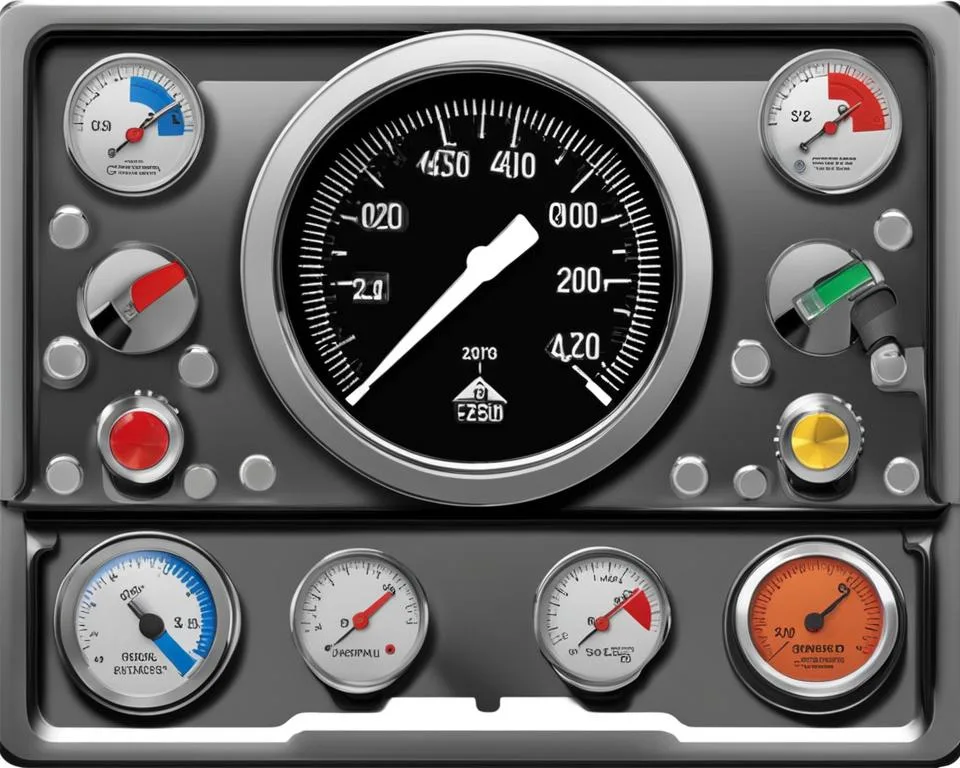
ทำไมคุณต้องใช้ Pressure Gauge
Pressure gauge เป็นเครื่องมือสำคัญที่ใช้ในการตรวจสอบและควบคุมความดันในสถานการณ์ต่างๆ เพื่อให้กระบวนการทำงานทำงานได้อย่างมีประสิทธิภาพ การใช้ pressure gauge ช่วยลดความเสี่ยงจากการรั่วไหล ซึ่งสามารถประหยัดเวลาและค่าใช้จ่ายได้ในอรรถประโยชน์มาก
ประเภทของ Pressure Gauge
Pressure gauge มีหลายประเภทที่ใช้ในงานอุตสาหกรรม ซึ่งแต่ละประเภทมีคุณสมบัติและการใช้งานที่แตกต่างกันไป ตัวอย่างประเภทของ pressure gauge ได้แก่ Bourdon tube pressure gauge, Diaphragm pressure gauge, Capsule pressure gauge, Absolute pressure gauge, Differential pressure gauge, Bellows pressure gauge, Manometer pressure gauge, และ Piezometer pressure gauge
| ประเภทของ Pressure Gauge | อธิบาย | การใช้งาน |
|---|---|---|
| Bourdon tube pressure gauge | ใช้หลักการของท่อบูร์ดองที่เคลื่อนที่เมื่อเปลี่ยนแปลงความดัน | นำไปใช้ในการวัดความดันทั่วไป |
| Diaphragm pressure gauge | ใช้หลักการของแผ่นปัดหรือแผ่นกำมะหยี่เมื่อมีการเปลี่ยนแปลงความดัน | เหมาะสำหรับวัดความดันที่ต่ำกว่า bourdon tube pressure gauge |
| Capsule pressure gauge | ใช้หลักการของแคปซูลสองชั้นเมื่อมีการเปลี่ยนแปลงความดัน | มักใช้วัดความดันของก๊าซ |
| Absolute pressure gauge | ใช้วัดความดันโดยไม่รับผิดชอบต่อการเปลี่ยนแปลงความดันที่เกิดขึ้นในอีกส่วนหนึ่ง | เหมาะสำหรับการวัดความดันในสภาวะที่แวคชั่นแปลก ๆ |
| Differential pressure gauge | วัดความแตกต่างระหว่างแรงดันจุด | ใช้ในการตรวจวัดการแสดงเวลามีการลดความดันบน pressure gauge |
| Bellows pressure gauge | ใช้หลักการของกระบอกเมื่อมีการเปลี่ยนแปลงความดัน | เหมาะสำหรับวัดความดันที่ต่ำกว่า bourdon tube pressure gauge |
| Manometer pressure gauge | ใช้หลักการของปรอทที่ใช้สมดุลอัตราของสองน้ำมัน | – |
| Piezometer pressure gauge | ใช้หลักการของท่อที่ทำงานหรือตอบสนองต่อความดัน | – |
แต่ละประเภทของ pressure gauge มีความสามารถในการวัดความดันที่แตกต่างกันไป ตามความเหมาะสมกับงานและสถานการณ์ที่ใช้งาน การเลือกใช้ pressure gauge ที่เหมาะสมเป็นสิ่งสำคัญที่จะให้ได้ผลลัพธ์ที่แม่นยำและใช้งานได้อย่างเต็มที่
Bourdon Tube Pressure Gauge
A Bourdon tube pressure gauge is a type of pressure measurement device commonly used in various industries. It operates based on the principle of a Bourdon tube that moves when pressure changes. This type of gauge can measure pressures ranging from 0.6 to 7000 bar. Its versatility and accuracy make it a popular choice for applications that require precise pressure measurement.
Whether it’s monitoring pressure in industrial processes or ensuring the integrity of a system, the Bourdon tube pressure gauge delivers reliable and consistent results. Its robust construction and ability to withstand high pressures make it suitable for a wide range of applications.
Common applications of Bourdon tube pressure gauges include:
- Oil and gas industries
- Chemical plants
- Manufacturing facilities
- Power generation
- Water treatment plants
- HVAC systems
With its wide pressure range and precise measurement capabilities, the Bourdon tube pressure gauge is an indispensable tool for pressure monitoring in various industries. Its reliable performance ensures the safety and efficiency of industrial processes, making it an essential component in many applications.
Advantages of Bourdon Tube Pressure Gauge
“The Bourdon tube pressure gauge offers accurate and immediate readings, allowing operators to make real-time decisions and adjustments based on pressure measurements.”
Compared to other types of pressure gauges, the Bourdon tube design provides several advantages, including:
| Advantages | Explanation |
|---|---|
| Wide Pressure Range | The Bourdon tube pressure gauge can measure pressures from 0.6 to 7000 bar, making it suitable for a wide range of applications. |
| Immediate Response | The gauge provides immediate readings, allowing operators to quickly assess the pressure situation and take necessary actions. |
| Durable and Reliable | Bourdon tube pressure gauges are known for their durability and reliability, ensuring long-lasting performance even in harsh operating conditions. |
| Cost-Effective | The Bourdon tube design offers a cost-effective solution for pressure measurement, making it a popular choice for many industries. |
Overall, the Bourdon tube pressure gauge is a dependable and accurate tool for pressure measurement. Its robust construction, wide pressure range, and immediate response make it an essential device in numerous applications.
Diaphragm Pressure Gauge
ในการวัดความดันในการใช้งานต่างๆ Diaphragm pressure gauge (ดายาฟรัม เพรชเชอร์เกจ) เป็นอุปกรณ์ที่มีความสามารถในการวัดและตรวจจับความดันด้วยหลักการของแผ่นปัดหรือแผ่นกำมะหยี่ที่เคลื่อนที่เมื่อมีการเปลี่ยนแปลงความดัน
Diaphragm pressure gauge มีโครงสร้างที่ช่วยในการวัดและแสดงผลความดันที่ต่ำกว่าที่ bourdon tube pressure gauge (บูรดอน ทูบเพรชเชอร์เกจ) สามารถทำได้ อย่างเช่นในการใช้ในงานที่ต้องการการวัดความดันที่น้อยไม่เท่ากับความดันที่มากในตำแหน่งเดียวกัน อย่างเช่นในการปรับความดันของก๊าซ
การใช้งาน Diaphragm pressure gauge มีความมั่นใจในการวัดความดันที่ต่ำเพื่อประเมินและควบคุมกระบวนการที่ต้องการความแม่นยำสูงในการวัดความดันที่ต่ำ ซึ่งใช้งานได้หลากหลายในงานที่ต้องการความชัดเจนในการวัดความดัน
Diaphragm Pressure Gauge Applications
Diaphragm pressure gauge สามารถนำไปใช้ในหลายงานที่ต้องการความดันที่ต่ำ เช่นในอุตสาหกรรม
- อุตสาหกรรมปิโตรเคมี
- ธุรกิจเคมี
- การผลิตและการส่งออกอาหาร
- งานที่เกี่ยวข้องกับการทำความสะอาดและการกำจัดความเสียหายในสถานที่ต่างๆ
ด้วยความแม่นยำและความไวในการวัดความดันที่ต่ำ Diaphragm pressure gauge เป็นอุปกรณ์ที่สำคัญในงานที่ต้องการการควบคุมและการตรวจสอบความดันรอบตัว
| ประโยชน์ของ Diaphragm Pressure Gauge ในงานอุตสาหกรรม |
|---|
| ช่วยในการตรวจสอบและควบคุมความดันในกระบวนการต่างๆ |
| ลดความเสี่ยงจากการรั่วไหลเพื่อควบคุมประสิทธิภาพของระบบ |
| ช่วยในการปรับปรุงและประสิทธิภาพของกระบวนการงาน |
Capsule Pressure Gauge
A capsule pressure gauge is a type of pressure measurement device that uses two flexible diaphragms or capsules to detect changes in pressure. It is commonly used for measuring gas pressure in various industrial applications. The capsules are typically made of metal and are sealed to create a chamber between them. When pressure is applied, the capsules flex or move in response to the pressure change, and this movement is then measured and displayed as a pressure reading.
Capsule pressure gauges are designed to accurately measure the pressure of gases, including air, nitrogen, and other non-corrosive gases. They are capable of measuring pressures ranging up to 600 mbar. These gauges are widely used in industries such as HVAC, process control, and gas distribution, where precise and reliable pressure measurements are crucial for ensuring optimal performance and safety.
One advantage of capsule pressure gauges is their ability to provide accurate readings even at low-pressure levels. This makes them suitable for applications where precise measurements are required, such as in laboratory settings or gas distribution systems. Additionally, the compact size and simple design of capsule pressure gauges make them easy to install and maintain.
Key Features of Capsule Pressure Gauges:
- Designed for measuring gas pressure
- Accurate and reliable pressure measurements
- Suitable for low-pressure applications
- Compact size and easy installation
- Cost-effective solution for pressure measurement
“Capsule pressure gauges are widely used in industries that require precise gas pressure measurements for optimal performance and safety.”
Applications of Capsule Pressure Gauges:
Capsule pressure gauges are utilized in various industries and applications, including:
- Gas distribution systems
- HVAC systems
- Chemical and pharmaceutical processes
- Laboratory research and testing
- Industrial process control
- Gas production and refining
Absolute Pressure Gauge
ในงานอุตสาหกรรม การวัดความดันเป็นสิ่งสำคัญเพื่อให้ทราบถึงสถานะและประสิทธิภาพของระบบที่ใช้ความดัน ในบางกรณี การวัดความดันโดยใช้ pressure gauge ปกติอาจไม่เพียงพอ หากทำการวัดความดันด้วยเครื่องมือพื้นฐานจะไม่สามารถรับรู้ถึงความดันเชิงสัมพันธ์กับความดันที่วัดในแวคชั่นได้ ต่อมาจึงมีรุ่น pressure gauge ที่ถูกพัฒนาขึ้นมาชื่อว่า Absolute pressure gauge
คือ pressure gauge ที่ใช้วัดความดันโดยไม่รับผิดชอบต่อการเปลี่ยนแปลงความดันที่เกิดขึ้นในอีกส่วนหนึ่ง หัววัดของ Absolute pressure gauge สามารถแสดงผลความดันที่วัดออกมาเป็นค่าสัมพันธ์กับความดันในบริเวณแวคชั่น
Absolute pressure gauge สามารถใช้งานได้ทั้งในสถานการณ์ที่ความดันแปลก ๆ เช่นในงานที่เกี่ยวข้องกับการบิน ระบบโฮเวียคบำบัดอากาศ และกระบวนการการกลั่น ด้วยความสามารถในการวัดและแสดงค่าผลต่าง ๆ ของความดัน absolute pressure gauge เป็นเครื่องมือที่เข้ากันได้ดีกับการวัดความดันในบริเวณที่ต้องการความชัดเจน
หากคุณกำลังมองหา pressure gauge ที่ใช้ในงานที่ต้องการความเอาใจใส่ในการวัดความดัน อาจคุณมีความสนใจใน Absolute pressure gauge เนื่องจากความสามารถในการทำงานและความถูกต้องในการวัดความดันที่เกี่ยวข้องกับแวคชั่นแปลก ๆ เสมือนใจว่าคุณไม่ต้องกังวลเกี่ยวกับการรั่วไหลหรือการเปลี่ยนแปลงความดันที่ไม่พึงประสงค์
Advantages of Absolute Pressure Gauge
- สามารถวัดและแสดงผลค่าสัมพันธ์กับความดันที่วัดในแวคชั่นได้อย่างถูกต้อง
- เหมาะสำหรับใช้ในงานที่มีความดันแปลก ๆ เช่นงานที่เกี่ยวข้องกับการบิน ระบบโฮเวียคบำบัดอากาศ และกระบวนการการกลั่น
- เป็นเครื่องมือที่มีค่าความเชื่อถือในการวัดความดันในแวคชั่นที่ต้องการความชัดเจน
เมื่อพิจารณาถึง Absolute pressure gauge ไม่ว่าจะเป็นในงานที่มีความดันแปลก ๆ หรืองานการผลิตทั่วไป ความสามารถในการวัดและแสดงผลค่าสัมพันธ์กับความดันที่วัดในแวคชั่นที่ต้องการความชัดเจนทำให้ Absolute pressure gauge เป็นตัวเลือกที่คุณควรพิจารณาในการเลือกใช้เครื่องมือวัดความดัน
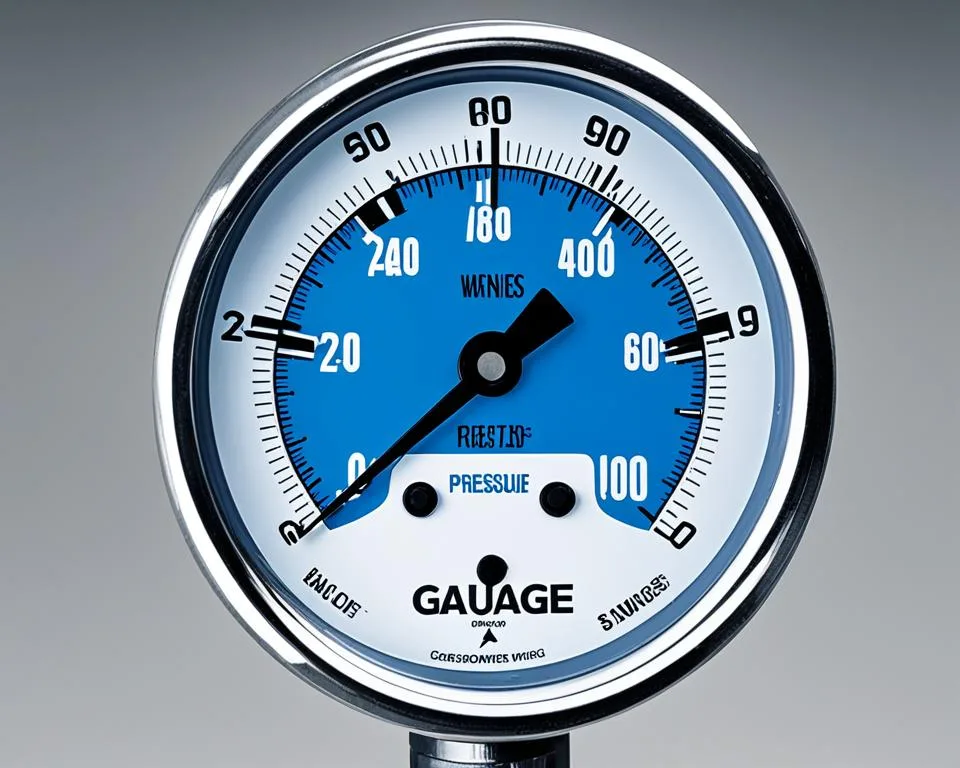
Differential Pressure Gauge
In pressure measurement, a differential pressure gauge is used to measure the pressure difference between two points. It provides valuable information about the changes in pressure within a system, allowing for accurate monitoring and control.
By comparing the pressure at two different locations, a differential pressure gauge can indicate the pressure drop or increase across various components or processes. This information is crucial in industries where maintaining optimal pressure levels is essential for efficient operations.
The differential pressure gauge consists of two pressure inlets connected to the system being monitored. As the pressure difference between the two points changes, the gauge’s indicator or dial will move accordingly, providing a visual representation of the measured pressure difference.
Applications of Differential Pressure Gauge
Differential pressure gauges find widespread use in numerous industries and applications. Here are a few examples:
- Heating, ventilation, and air conditioning (HVAC) systems
- Fluid flow measurement
- Filtration systems
- Process control systems
- Hydraulic systems
- Chemical processing plants
- Oil and gas refineries
Advantages of Using a Differential Pressure Gauge
Using a differential pressure gauge offers several advantages:
- Precise pressure measurement: The gauge provides accurate and real-time monitoring of pressure differences, ensuring optimal system performance.
- Early detection of issues: By continuously monitoring pressure differentials, potential problems such as clogged filters or leaks can be identified early, allowing for timely intervention and avoiding costly failures.
- Improved system efficiency: With the ability to measure pressure differences, the gauge enables fine-tuning of system parameters, resulting in more efficient operations and energy savings.
- Enhanced safety: Differential pressure gauges help maintain safe pressure levels within systems, preventing overpressure situations that can lead to accidents or equipment damage.
Overall, the differential pressure gauge is a valuable tool for pressure measurement, providing critical insights into pressure differences and contributing to the effective monitoring and control of various processes and systems.
Bellows Pressure Gauge
A bellows pressure gauge is a type of pressure measurement device commonly used in low-pressure applications. It operates based on the principle of a bellows that expands or contracts as pressure changes. This change in the bellows is then translated into a corresponding reading on the gauge.
The bellows pressure gauge is particularly suitable for measuring low pressures that may not be accurately measured by other types of gauges, such as bourdon tube pressure gauges. It is often used in industries where precise pressure measurements are required, such as HVAC systems, medical equipment, and laboratory applications.
One of the advantages of using a bellows pressure gauge is its sensitivity to small pressure changes, making it ideal for low-pressure applications. It provides precise and reliable measurements, ensuring that pressure levels are maintained within specified limits.
“The bellows pressure gauge is a versatile tool that plays a crucial role in maintaining the efficiency and safety of various industrial processes.”
With its ability to accurately measure low pressures, the bellows pressure gauge is commonly used in applications such as leak detection, pressure monitoring in vacuum systems, and gas analysis. It is an essential tool for ensuring the proper functioning of delicate instruments and systems.
Advantages of Bellows Pressure Gauge:
- Accurate measurements for low-pressure applications
- Sensitive to small pressure changes
- Reliable and durable
- Wide range of applications
Overall, the bellows pressure gauge is a valuable instrument for pressure measurement in low-pressure applications. Its sensitivity and accuracy make it an essential tool for various industries, ensuring the optimal performance and safety of critical processes.
สรุป
Pressure gauge คืออุปกรณ์ที่สำคัญในการวัดความดันในงานอุตสาหกรรม เครื่องมือชนิดนี้ใช้ในการวัดความดันของของเหลวและก๊าซซึ่งใช้ในระบบต่างๆ ตั้งแต่ระบบชีวะอุตสาหกรรมไปจนถึงระบบบริการ ค่าความดันที่มีความหนาแน่นต่างออกไปใช้ pressure gauge ในประเภทต่างๆ อาทิเช่น bourdon tube pressure gauge, diaphragm pressure gauge, capsule pressure gauge, absolute pressure gauge, differential pressure gauge, bellows pressure gauge, manometer pressure gauge, และ piezometer pressure gauge ที่มีความสามารถและวิธีการวัดที่แตกต่างกัน
Pressure gauge เป็นเครื่องมือที่สำคัญสำหรับการควบคุมและตรวจสอบความดันในกระบวนการทำงาน ประโยชน์ที่สำคัญของ pressure gauge คือเพื่อป้องกันการรั่วไหลของของเหลวหรือก๊าซ รวมถึงการปรับปรุงประสิทธิภาพของระบบ การใช้งาน pressure gauge ช่วยลดความเสี่ยงจากการรั่วไหล ประหยัดเวลาและค่าใช้จ่ายในอรุณส่วนเสริม
ในสรุป pressure gauge เป็นเครื่องมือที่สำคัญในการวัดความดันในงานอุตสาหกรรม หลายประเภทและมีวิธีการที่แตกต่างกัน มีประโยชน์มากในการควบคุมกระบวนการและป้องกันการรั่วไหล รวมถึงเพิ่มประสิทธิภาพของระบบ

